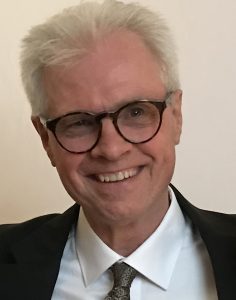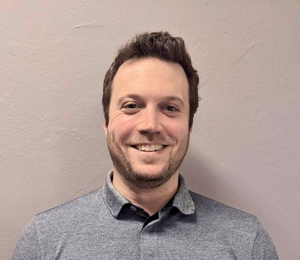Dear blog reader,
The next series of blogs come from Robert Styles, Stuart Libman, Gretchen Kelly, and Aaron Libman from the PLEA agency, a non-profit mental health and education provider. You might remember that Stu Libman has been with us here on the series once before (click here for Stu’s last blog). This time around he has returned with his colleagues (full author bios at the bottom of the page) with a fantastic three-part contribution that really emphasises the theme of integration and collaboration. Specifically, this stellar team talks to us about the benefits of their attempts to integrate recent developments in behavioral and evolutionary science with the application of Prosocial for promoting longitudinal organizational change. Successfully integrating across these domains is no mean feat and is presented beautifully across three parts, which can be read in one go or in three different sittings (depending on the mood!). In any case, we hope that you enjoy reading these blogs as much as we did and get a good sense of the potential power of cooperating and collaborating across different domains as so beautifully demonstrated here.
Colin and Dermot
ROE-M’ing Our Way Toward a Preferred and Probable Future
In the service of seeking to consciously evolve a world that works for all, Prosocial World combines individual-level psychological flexibility with group-level organizational flexibility in an approach based on Evolutionary Science to enhance cooperation and collaboration for groups of all types and sizes. In this three-part series, we will offer an overview of Prosocial, the assumptions and theoretical underpinnings of this approach, and the initial results we are observing as we seek to utilize Prosocial for promoting longitudinal organizational planning.
Who are we? We are the leadership team at PLEA, a non-profit mental health and education provider located in Pittsburgh, Pennsylvania, USA. We strive to provide hope, quality services, and support for individuals and families dealing with autism, mental health issues, and developmental challenges. Working with a consultant from Prosocial World, we recently paused to reflect on what a preferred future might look like for our organization. This reflection led us to ponder our individual and collective needs in the context of the broader surrounding system. Our inquiry distilled onto the Strategic Agenda Setting Question, “What would it look like in ten years if there was a truly values-based governance system in place at PLEA?” What constitutes ‘value’ within our imagined future was contrasted with the prevailing climate of ‘bargain hunting’ that has everyone performing in ways that aren’t truly ‘values-based’ in our view.

With this sense of a desired future we then asked, “How can we position ourselves and our collective efforts to achieve desired change?” This is a fundamentally important question! If we are to evolve toward a different world, we realised we need to take into account a very different array of options to those being taken by those in the current system, otherwise, we will continue exposing ourselves to more of the same – bargain hunting.
So, what are we assuming? In this initial section, “Prosocial and Strategic Agenda Setting,” we would like to share the content of our perspective with you. We will then take a step back in the second section, “The RFT of ROE-M’ing” to consider why our view of the world might work through the lens of a behaviour-analytic account of human language and cognition known as Relational Frame Theory (RFT). Once we have introduced RFT, we will explain the usefulness of a behavioral unit of analysis that has emerged from an updated version of RFT, known as “ROE-M,” that is, our Motivation for the stories we Relate, the events to which we Orient, and our Evoked responses. Finally, in our third section, “ROE-M’ing Prosocially,” we will explore what it means to engage in ROE-M’ing our way toward a preferred and probable future.
Prosocial and Strategic Agenda Setting
The essential feature of Evolution Science is the process of variation, selection and retention in specified contexts. Prosocial seeks to create multilevel evolutionary cooperation and collaboration for individuals and groups of all types and sizes by integrating Acceptance and Commitment Training (ACT) with the Core Design Principles (CDP’s) of Successful Organizations for which Dr. Elinor Ostrom won the 2009 Nobel Prize in Economics. These CDP’s include: 1) Shared identity and purpose; 2) Equitable distribution of contributions and benefits; 3) Fair and inclusive decision-making; 4) Monitoring agreed-upon behaviours; 5) Graduated responses to helpful and unhelpful behaviours; 6) Fast and fair conflict resolution; 7) Authority to self-govern; and 8) Collaborative arrangements with other groups. Both ACT and the CDP’s serve to increase behavioural options that can be selected by the individual’s values or the organization’s purpose and then retained by the effects of positively reinforcing accomplishments and adaptations.

Recognizing that we humans also can behave separately and collectively in distinctly uncooperative and non-collaborative ways, both ACT and the CDP’s also provide means for addressing emotional distress and behavioural reactivity. Prosocial utilizes the ACT Matrix, a diagrammatic procedure for mapping both our highest aspirations and the emotional challenges we all inevitably face individually and in groups, as a vehicle for providing behaviour analytic skill training towards increasing psychological and organizational flexibility, that is, our ability to remain oriented towards pursuing a valued life course or shared purpose even when we encounter adverse contingencies (Atkins et al. 2019). The CDP’s provide guidance in helping organizations operate with clarity of purpose, fairness, and contextual sensitivity; CDP’s 5 and 6, in particular, specify the importance of developing a priori methods for addressing behaviours of concern that can arise when we humans interact in groups of all varieties.
With these principles for prosociality in mind, we began deliberating, what would it look like in ten years if there was a truly values-based governance system in place at PLEA? We felt that it would be important for our staff to have “increased access to positive reinforcement via adaptive responding” as this “can be critical to wellbeing in organizations” (Houmanfar & Szarko 2022). More broadly, for PLEA, and those we are working with, from families to government regulators and funding bodies, to embrace and actively pursue a different array of ‘values-based’ options, it is crucial there be strong, trusting social bonds between the individuals and groups involved and that we have the capacity to act (resources, economy, population, skills, etc.) and a will to cooperate (political will, social capital, participation, etc.).
Central to building trust and social cohesion is the work of aligning our individual and collective capacity to act with a shared purpose whenever necessary. This is about giving legitimacy and support within the context of personal and collaborative endeavours. It’s about power and authority that builds in purpose to act with sovereignty and self-determination. This raises an important question; how do we understand ‘power-to’ get things done?
For our purposes, when working with government, various institutions, and our community, we choose to recognise power to be “the capacity to mobilise resources to attend to needs” (Kashtan 2014, p.130). This definition of power suggests that we don’t use power or authority for its own sake; we use it to satisfy needs, either our own or those of others. This distinction is central to our endeavours.
Power is, first of all, a capacity or ability; it is the potential to achieve specific outcomes. Some people mistakenly see this capacity as residing in the individual. But, in our view, power is always relational. We might think of power as having different bases or sources such as access to information, authorisation by others, expertise or even likeability. But even the last of these, usually called “referent power,” is a capacity to achieve outcomes based upon a relationship.
Second, power is the capacity to meet needs. So, what are needs? A need is anything an organism requires to thrive. Within the context of our endeavours, ‘needs’ refer to the most essential categories of what motivates us and what is necessary for life, not to the almost endless strategies of attending to those needs.

Simply, there are four basic categories of need – physical wellbeing (e.g. food and shelter), freedom, connection, and meaning. These same four basic needs apply equally to the collective – environmental health (i.e. sustainable resources), sovereignty, partnership, and shared purpose. This is precisely where we see a link between autonomy and interdependence as two intertwining dimensions. We cannot have full autonomy if we need to escape connection to have it, and we cannot have full connection if it means giving up on freedom to have it. Furthermore, needs are understood to be universal aspects of experience that apply to everyone irrespective of culture or circumstance (Deci & Ryan 2002; Rosenberg 2003). It is this latter characteristic that makes them so useful for our purposes. Focusing on needs automatically brings us towards a sense of shared identity and purpose. In this way, needs, along with purpose and values, define an essential aspect of ‘what matters to us’. Understanding what we need in this way can liberate us from having to ‘bargain hunt’ to survive.
Power also involves “mobilising resources.” A resource is simply a stock of some sort that can be drawn upon to get things done and do what we want. Resources can be anything in our life-world. They can be ‘outside’ ourselves such as money, tools or relationships, or ‘inside’ ourselves such as skills, knowledge and even more or less useful patterns of responding to stress and challenge.
These distinctions are providing an approach to decision-making that is based on collecting all needs relevant to a decision and engaging stakeholders in converting them to practical strategies that can work for all, now and in the future. To render an integrated response to meeting our collective needs at each level, we have employed a taxonomy of four categories. To realise a ‘truly values-based governance system’ we are asking, how should the multiple players in the system:
- Constitute themselves into mutually beneficial relationships;
- Organise themselves strategically;
- Design and implement the machinery of the system to get things done; and
- Motivate themselves?

Why this taxonomy? Constitutional arrangements either frustrate or enhance choice and/or capacities to exercise power and authority on behalf of the respective institution or in the service of a collective endeavour. The presence or absence of strategically qualified opportunities determine levels of investment and action taken by the players involved. A system’s machinery, governance arrangements, cultural norms, policies, procedures, etc., moderate various measures of equity (procedural, informational, distributive, relational) across the system. Finally, the degree of reciprocity experienced by the individuals and teams involved either have them behaving to avoid stuff they don’t want or striving to have their intrinsic worth mean more within the context of the collective endeavour. This framework is enabling us to better discern opportunities that will ultimately build the mutual trust and social cohesion required to evolve toward a ‘truly values-based’ system that works for all within the healthcare sector we are a part of.
It’s one thing, however, to explore power in the context of the CDP’s and another matter entirely to initiate a planning process whereby an organization can inculcate these principles as a means of values-based operations. We therefore initiated a sequence of Strategic Agenda Setting Sessions designed with the purpose of providing an opportunity for PLEA or any organization to derive strategically positioned opportunities to further their professional interests within their sphere of influence. Procedurally, we engaged in three 90-minute dialogues, 2 weeks apart, with 90 minutes of fieldwork following each dialogue. We initially sought to define our Strategic Agenda Setting Question, in our case related to a ten-year plan for evolving values-based governance at PLEA, and then delineating a plan for investigating this question with relevant groups of stakeholders. In our second dialogue, we defined critical uncertainties for analyzing trends within our broader systemic context prior to the third dialogue in which we defined initial plans for moving towards our “preferred and probable future.”
Before returning to Strategic Agenda Setting at PLEA in the concluding section of this three part series, however, the next blog part will turn our attention to a consideration of the way in which Relational Frame Theory informs Prosocial. Click here.
Author Bios:

Dr Robert Styles initially trained in music then, in a later chapter of his life, went on to become an academic doing applied research in the field of Contextual Behavioural Science through the Australian National University. Over the last couple of decades, this stream of activity has had Robert working with communities, organisations, and governments across the Australian, Pacific, African, Asian, European, and American regions. Presently, he is working with Prosocial World, an organisation that has developed a change method based on behavioural and evolutionary science that enhances cooperation and collaboration for groups of all types and sizes that is potentially effective at a global scale. When engaged, for Robert, this means co-designing behavioural and evolutionary approaches to realising environmental and socio-cultural resilience and wellbeing for those he is working with.

Stuart Libman, M.D. is a Board Certified Child, Adolescent and Family Psychiatrist, with further sub-specialization in Sports Psychiatry. After graduating from Ohio University and the School of Medicine at Case Western Reserve University, he completed training in Pediatrics, General Psychiatry, and Child and Adolescent Psychiatry at the University of Pittsburgh. Dr. Libman serves as a Peer Reviewed ACT Trainer for the Association of Contextual Behavioral Science, as a Prosocial Facilitator, and as the Medical Director of the PLEA School Based Partial Hospital Program that provides behavior analytically based education and treatment to a referred population of children and youth with diagnoses on the Autistic Spectrum.

Gretchen Kelly is the Executive Director of PLEA, an agency that provides services to children, adults and families dealing with developmental and/or behavioral health difficulties. This role provides Gretchen with opportunities to focus on community partnerships and to help individuals and their families feel empowered through meaningful relationships. After training in both ACT and Prosocial, she has integrated these concepts into her work at PLEA and with other community associations as a board member or in an advisory capacity. Gretchen has a degree in Public Relations from Westminster College.

Aaron Libman is the Clinical and Program Director for the PLEA School Based Partial Hospital Program. In his role he oversees the education and behavioral health treatment of 40 students, ages 3-21 years, in a specialized program that places an emphasis on behavior analytic interventions to promote adaptive functioning, language and communication development, and academic progress. He has received formal training in Acceptance and Commitment Therapy (ACT), Relational Frame Theory (RFT), and Prosocial, which all inform the day-to-day treatment conversations at PLEA as well as broader organizational planning. Aaron received his Bachelor’s Degree in Psychology from Denison University and his Master’s Degree in Education from the University of Pittsburgh. He currently is a Pennsylvania Licensed Behavior Specialist and a Board Certified Behavior Analyst.
References
Atkins, PWB, Wilson, DS & Hayes, SC 2019, Prosocial: Using evolutionary science to build productive, equitable, and collaborative groups, New Harbinger, Oakland, CA.
Deci, EL & Ryan, RM 2002, ‘Overview of Self-Determination Theory: An Organismic Dialectical Perspective’, Handbook of Self-Determination Research, The University of Rochester Press, New York.
Houmanfar, RA & Szarko, Aj 2022, ‘Value-Based Governance in Organisations and Beyond’, in RA Houmanfar, M Fryling & MP Alavosius (eds), Applied Behavior Science in Organisations: Consilience of Historical and Emerging Trends in Organisational Behavior Mangement, Routledge, New York.
Kashtan, M 2014, Reweaving Our Human Fabric: Working together to create a nonviolent future, Fearless Heart Publications, Oakland, CA.
Ostrom, E 1990, Governing the Commons: The Evolution of Institutions for Collective Action, Cambridge University Press, UK.
